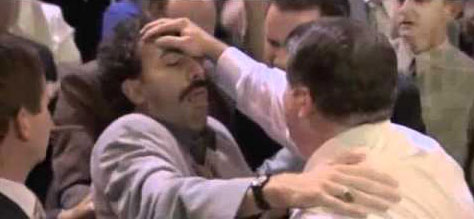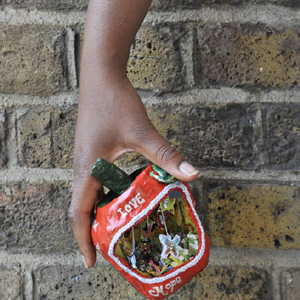
I've been reborn twice.
The first time I was three years old.
On my knees in a small house church in Tasmania, Australia, I said a little prayer and joined the ranks of Evangelical Charismatic Pentacostal Christians. And by those four words I mean the people in the movie Borat: the ones who run around the church, wave their hands, fall over and laugh uncontrollably for hours.
I started speaking in tongues when I was seven.
I was right into it. My teenage years in Brisbane were a riot of evangelizing my classmates, volunteering in a windowless office in the church basement every day after school and saving my first kiss until the tender age of 17 (for some guy with egg-smelly breath). That’s when I left home to attend Bible College in Sydney.
I’d wanted to be a pastor since I was 14 years old. I married, still a virgin, at 21 and six months later, we were ordained into one of the largest churches in Australia. It was life just how I imaged it. Perfect.
Except for one thing.
I would get these annoying periods of confusion. Usually reading an apologetics book by Lee Strobel, CS Lewis or Philip Yancy would sort me right out, but I felt a responsibility as a pastor not to have any doubt. How could I be paid to tell people this was the truth if I wasn’t 100 per cent absolutely sure myself?
So I went on a Search For Truth to get rid of that one per cent of doubt, fully believing God was real and would stand up to any investigation made from an honest heart. I would come right back to where I was, except this time with a kick-ass story, Lee Strobel style!
Instead, I fell down a rabbit hole. Reality went completely topsy-turvy on me.
Initially, I put the Richard Dawkins books back on the shelf without reading them the whole way through, realising that there’s no fool-proof way to tell which religion was the right one and that faith is just that – faith. A choice. When I tried to envision a life without God there was just… nothing. A blank. It didn’t exist. So I chose to believe instead.
It worked for a while. I’d come across Ghandi’s book Experiments with Truth though and the thought inspired me. It started off small – if I don’t pray and read my bible today, do I still have a good one? – and ended up big – if I admit to myself that I don’t believe in the Holy Spirit can I still get this entire room falling over and ‘experiencing Him’?
The second time I was born again, I was sitting in the front seat of my car bawling my eyes out onto the my steering wheel, saying "I don’t know". It felt so good to admit to myself that I didn’t know if God was real or not. At the same time it was devastating, as though he had died. Those who have had a loved one, like a parent, pass away will know how this realisation alters your world. Colours change.
Over the next few months as I slowly let go layers of what I considered to be "truth", I felt so much freedom! I didn’t have to believe people saw the world the wrong way or that things they did were bad. I could read whatever I wanted, actually think about it and come to my own opinion. Most of all, I could trust myself; my body, my mind, my decisions.
After we resigned and moved to Melbourne, my husband and I amicably separated, realising we were making each other miserable. I’ve lived a pretty wild life for the past couple of years, going to University, travelling Europe and South America, learning how to drink more than two glasses of wine without falling asleep…basically catching up on all the things I missed.
There’s stuff I’d never do again but nothing I regret. Seeing, discovering, experiencing, knowing and understanding the world around you for yourself can’t be replaced by a book or a preacher. And that, I’m pretty sure, is the truth.

